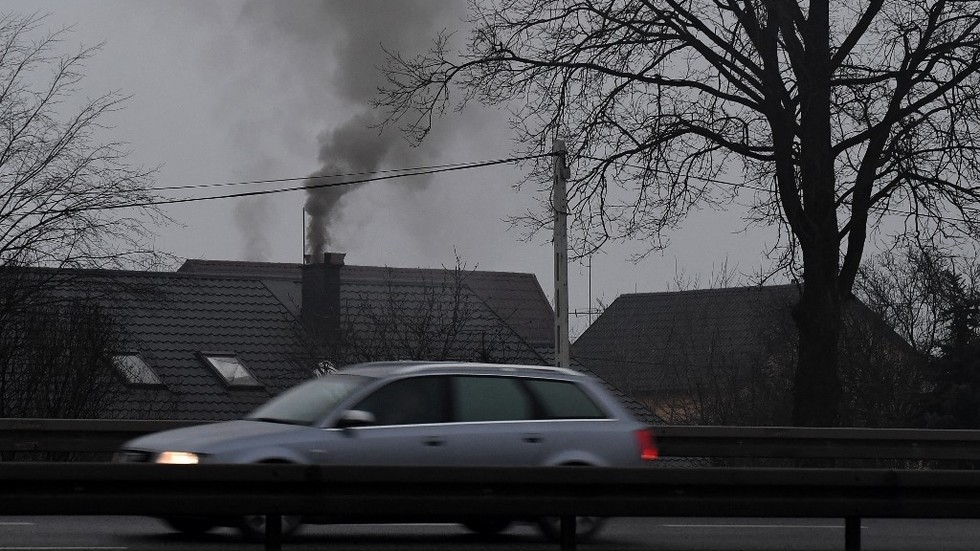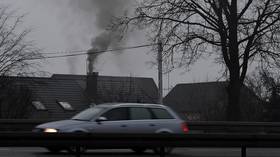
As Poland adjusts to life without Russian gas, desperate measures could drive up pollution

A car drives past by a house with a fuming chimney on the outskirts of Warsaw, Poland, February 3, 2017 © AFP / Janek Skarzynski
Polish households are increasingly burning garbage to stay warm, Bloomberg reported on Thursday. As the country grapples with the consequences of anti-Russia sanctions, pollution is set to skyrocket.
“It’s so bad this season that you can smell trash burning every day, which is completely new,” Paulina Mroczkowska, a 35-year-old mother of three from a Warsaw suburb, told the US newspaper. “Rarely can you smell a regular fuel. It’s scary to think what happens when it really gets cold.”
Mroczkowska said that she first noticed something was amiss when she spotted a neighbor hoarding garbage in their workshop, but the problem is not unique to the Polish capital. In the town of Nowy Sacz, about 100 kilometers (62 miles) southeast of Krakow, local authorities are collecting significantly less garbage than last year, sparking fears that highly-polluting trash fires could become commonplace as temperatures drop further.

Read more
Poland has given citizens a green light to burn their refuse, with Jaroslaw Kaczynski, leader of the ruling Law and Justice party, telling supporters last month that “one needs to burn almost everything” to stay warm. Kaczynski’s declaration came several months after his government relaxed a ban on low-quality coal, and weeks after a regional assembly in Krakow voted to delay a ban on burning almost anything in household furnaces.
After Russia launched its military operation in Ukraine in February, Poland became one of the loudest proponents of an EU-wide ban on Russian energy imports. However, it has suffered for its stance.
Poland once relied on Russia for 46% of its gas, 64% of its oil, and 15% of its coal. However, it saw the flow of gas halted in April when Warsaw refused to pay Russian energy giant Gazprom in rubles, and plans to cease oil imports by the end of the year. Poland stopped buying coal from Russia in April, and although the government insisted that domestic supplies were enough to make up the shortfall, shortages were soon reported and prices more than doubled.
According to EU figures from last year, Nowy Sacz is already the bloc’s most polluted city, with four other Polish cities – Zgierz, Piotrkow Trybunalsi, Zory and Krakow – occupying spaces in the worst 10.




